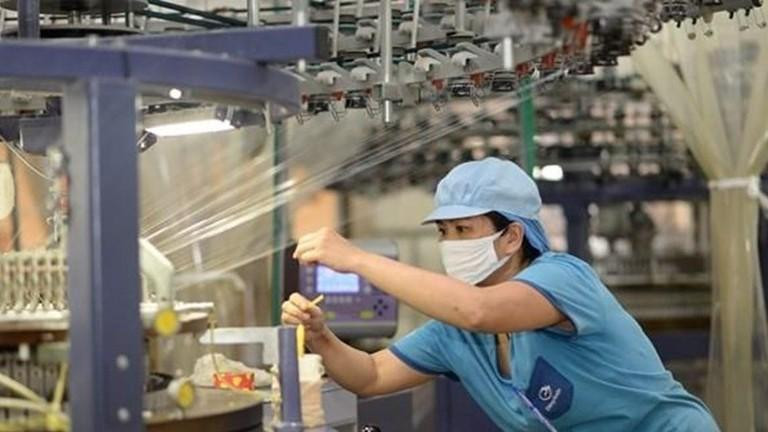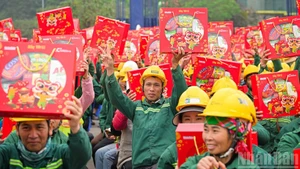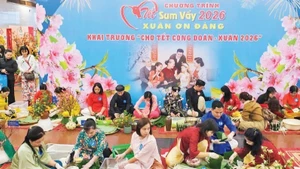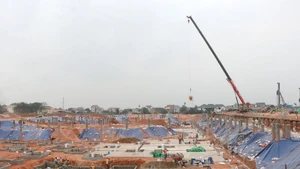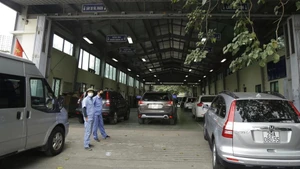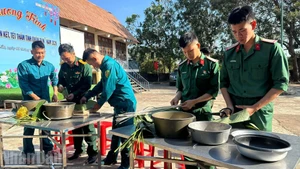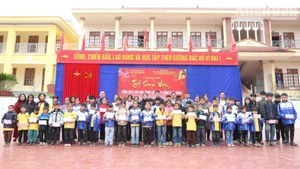Awareness of people in general, employees and employers in particular, towards skills development has gradually been improved, occupational skills are considered as “new currency”, the motivation for professional development, income enhancement and sustainable jobs for employees.
The National Assembly and the Government have closely directed, many ministries, branches, localities and relevant agencies and organisations, to prioritise resources, mechanisms and policies and take drastic actions to promote the development of natural resources of both skilled and highly skilled human resources.
The Ministry of Labour, Invalids and Social Affairs is also actively completing a project to upgrade Vietnamese labour skills, to submit to the Prime Minister, and mobilise all resources to accompany and improve skills for the workforce.
The business community is gradually changing its thinking and actions, recruiting and employing employees based on skill levels and practice capacity, actively participating in responsible skill development, and deeply participating more in the process of policy formulation and skills training for workers.
International cooperation is strongly promoted, with a lot of experience and resources for investment in vocational education development from other countries, such as the Republic of Korea, Australia, Germany, France, and international organisations, such as the International Labour Organisation (ILO), International Organisation for Migration (IOM), World Bank (WB), and the International Cooperation Agency of Germany (GIZ), etc.
The receipt and transfer of training programmes from Australia and Germany have provided high-quality human resources, that meet international standards for the labour market while investing in skills development and lifelong learning opportunities for all, which becomes a shared responsibility of the community.
However, although Vietnam has the advantage of a golden population structure with about 55 million people of working age, the bottleneck is the quality of human resources. The rate of trained workers with degrees and certificates only reached 24.6%; the skills index and the quality of vocational training, though impressively increased, remained at 97/140, still a big gap compared to Northeast Asian and Southeast Asian countries.
The percentage of employees with university degrees or higher but working in positions requiring only college degrees or less has increased rapidly over the past 10 years, from 12% to 25%. This is one of the reasons for low productivity, despite the relatively high economic growth over the past 25 years.
Therefore, Vietnam will “run out of opportunities” if it does not take advantage of the golden population opportunity and catch up with emerging economies in the region and if it does not accelerate skilled human resources, improve labour productivity, and increase national competitiveness, especially in the context of the impact of the epidemic, the trend of automation, electronification, digitisation, the impact of the fourth industrial revolution and international integration.
Vietnam Labour Skills Day 2022, with the theme “Enhancing Vietnamese labour skills for the sake of developing a prosperous and happy country”, once again emphasises the important role of a quality, skilled and efficient workforce. It is an invaluable resource that determines the development of each country.
Skilled human resources, especially those with high skills in policy making and implementation, will contribute to creating outstanding labour productivity, promoting GDP growth and improving national competitiveness, especially in the period of accelerating industrialisation and modernisation.
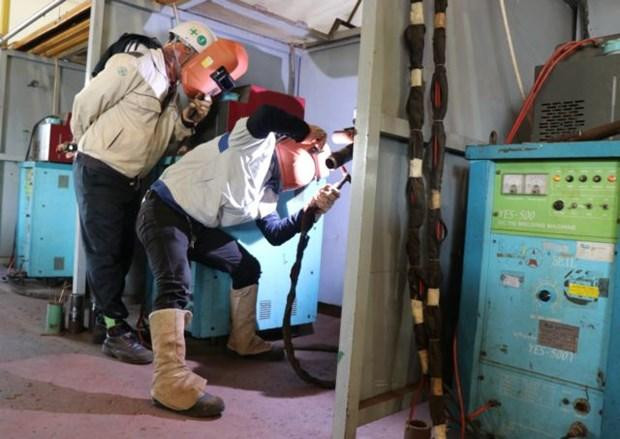 |
| Workers in Binh Son district, the central province of Quang Ngai, participate in a high-tech welding apprenticeship at DooSan Vina Training Centre in Dung Quat Economic Zone. (Photo: VNA) |
However, in the long term, to have a source of “expensive labour” - high-quality human resources for the process of socio-economic recovery and development, ensuring sustainable security, vocational education and training must go one step ahead and take the lead to prepare the workforce for society and businesses.
To give up the concept of competition with “cheap labour”, requires localities, businesses and workers themselves, managers and employers to make drastic changes. It can be seen that, in the past period, the vocational education system has been determined to “improve” itself first in teaching and learning activities, developing skills for learners; professional activities to improve skills for teachers and learners have been maintained and increasingly attracted the participation of businesses and organisations.
In particular, on December 30, 2021, the Strategy for Vocational Education Development for the 2021-2030 period, with a vision to 2045, was issued by the Prime Minister with a consistent view that vocational education development is the most important task in human resource development.
The State has policies to gradually popularise the profession for young people; prioritising budget allocation for vocational education within the education-training budget and also in the programmes and projects of sectors and localities, to meet the increasingly diverse demands of the labour market, of the people in terms of quantity, structure and quality of human resources, with vocational skills for national development, following the Resolution of the 13th National Party Congress, as well as catch up with the country's deep integration trend.
